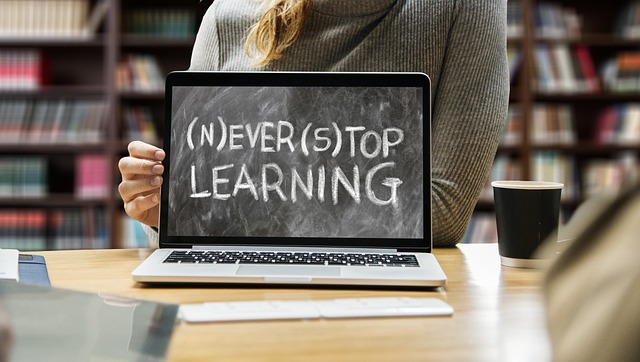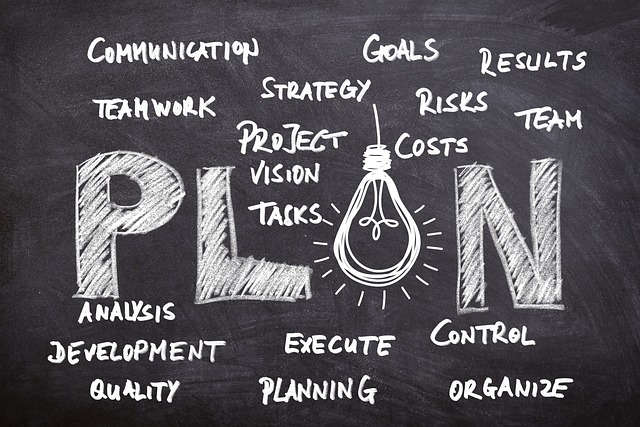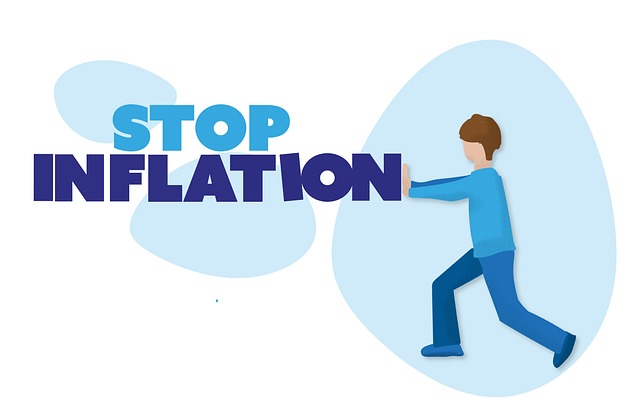The Importance of Continuous Learning for Personal Growth
In our rapidly changing world, the concept of continuous learning has become more crucial than ever. To thrive in both personal and professional domains, individuals need to embrace lifelong learning. This practice not only expands knowledge but also fosters adaptability. When we think about personal growth, continuous learning emerges as a vital pillar supporting it. So why is this journey essential, and how can it benefit us on multiple levels?
First, let’s dissect what we mean by continuous learning. Essentially, this term refers to the ongoing, voluntary, and self-motivated pursuit of knowledge. It can occur through formal means such as classes and workshops, or informally through reading, online courses, and engaging in dialogues that challenge our existing viewpoints. This form of education injects a breath of fresh air into our cognitive functioning, enhancing creativity and problem-solving skills. With the world at our fingertips through technology, the opportunities for learning continue to grow exponentially. Imagine having access to the world’s knowledge and transforming that into personal skills that fuel your growth.
The Role of Continuous Learning in Personal Development
Personal development is a comprehensive process, encompassing various facets of an individual’s life. Continuous learning plays a pivotal role in this journey, primarily by encouraging self-awareness and self-improvement. When we engage in learning, we often confront new ideas and perspectives that challenge our established beliefs. This confrontation is healthy. It compels us to question our assumptions, assess our skills, and make necessary adjustments to foster growth.
Moreover, continuous learning doesn’t just benefit us intellectually; it also enhances our emotional intelligence. The moment we begin to appreciate diverse viewpoints and cultures through our learning endeavors, we develop empathy. This trait proves essential, especially in today’s interconnected world. Being able to relate to others and understand their experiences broadens our emotional depth and makes us better communicators and collaborators. In a society that thrives on connection, these skills become invaluable.
Cultivating a Growth Mindset
At the core of continuous learning lies the notion of a growth mindset. Coined by psychologist Carol Dweck, this concept suggests that our abilities and intelligence can be developed over time through dedication and hard work. Embracing a growth mindset transforms how we approach challenges and setbacks. Instead of seeing failures as roadblocks, we view them as opportunities to learn and improve. It encourages resilience and perseverance, two qualities essential for achieving personal goals.
In practical terms, nurturing a growth mindset involves several strategies. For instance, practicing self-reflection allows us to learn from our experiences. Keeping a journal where we note our thoughts, feelings, and lessons learned can facilitate introspection. Additionally, seeking feedback from others becomes crucial. Peers, mentors, and coaches can provide insights that highlight our strengths and areas for growth. By internalizing this feedback and acting on it, we take tangible steps toward personal development.
The Link Between Continuous Learning and Career Advancement
A significant aspect of continuous learning is its undeniable impact on professional growth. In today’s job market, standing still is often equated with falling behind. Industries evolve, technologies advance, and job requirements change—sometimes at an astonishing pace. Continuous learning helps professionals stay relevant and competitive. By acquiring new skills, employees broaden their expertise and increase their value within their organizations.
Moreover, businesses actively seek individuals who display a commitment to learning. Employers want team members who demonstrate curiosity and a desire to improve. When you consistently engage in personal and professional development, you not only become an asset to your current company but also open doors for future career opportunities. Networking within the learning community—whether through seminars, workshops, or online platforms—allows you to connect with like-minded individuals who can catalyze your career. This opportunistic networking can lead to new job offers, partnerships, and collaborations that can profoundly influence your career trajectory.
Continuous Learning for Enhanced Problem-Solving Skills
An often-overlooked benefit of continuous learning is its ability to enhance critical thinking and problem-solving skills. When we expose ourselves to a variety of subjects and disciplines, we train our brains to think differently. We develop the ability to analyze situations from multiple angles, leading to more robust decision-making abilities. In a workplace setting, this capacity to find innovative solutions to complex problems can set you apart from your colleagues.
Furthermore, having a diverse knowledge base equips us with various tools and frameworks to tackle challenges. For instance, learning about philosophy can sharpen our reasoning skills, while studying psychology enriches our understanding of human behavior. Likewise, exploring the arts can boost creativity. By integrating different fields into our learning journey, we create a rich tapestry of knowledge that we can draw from in both professional and personal contexts.
Encouraging Lifelong Learning Habits
For many, the challenge lies in making continuous learning a habit. Life gets busy, and it’s easy to fall into a rut. However, prioritizing learning is essential for personal growth. One effective strategy is to set specific, achievable goals. Consider what skills or knowledge areas you want to pursue. Breaking these down into smaller, manageable tasks can prevent feelings of overwhelm.
Furthermore, consider integrating learning into your daily routine. You could download audiobooks or podcasts to listen to during commutes. You might dedicate certain days of the week to learning new software or taking an online course. The key is to incorporate learning into your lifestyle naturally. This strategy not only makes the process enjoyable but also engrains it as a core component of your day-to-day existence.
The Emotional and Psychological Benefits of Continuous Learning
Continuous learning doesn’t just yield intellectual benefits; it also fosters emotional well-being. Engaging with new ideas and skills boosts our confidence. When we overcome learning hurdles, we experience a sense of accomplishment. This feeling encourages further learning, creating a positive feedback loop. Moreover, learning often leads to improved mental health. Studies indicate that intellectual engagement can stave off cognitive decline and even promote longevity.
Additionally, sharing your learning experiences with others enhances your sense of community and belonging. Whether through study groups, book clubs, or community classes, learning collaboratively enriches our lives and expands our network. Supporting one another on this learning journey builds stronger relationships and reinforces our motivation. Connecting with like-minded individuals magnifies the joy of learning and keeps us accountable in pursuing personal growth.
Continuous Learning in the Digital Age
We live in an era defined by technology, transforming how we learn. Online platforms like Coursera, Udacity, and edX offer courses on virtually any subject. You can learn at your own pace and convenience. Social media also plays a role in this evolution. Professionals are now sharing insights via blogs, YouTube channels, and podcasts, democratizing knowledge across demographic lines. This accessibility significantly lowers barriers to education, making continuous learning feasible for everyone.
Moreover, digital tools can facilitate personalized learning experiences. Artificial intelligence and adaptive learning technologies assess individual progress and modify content accordingly. This means that learning can be tailored to your needs and preferences, making it more effective. In adopting these resources, you not only enhance your skillset but also embrace the future of learning.
Implementing Continuous Learning in Your Life
So how can you put all this information into practice? First, conduct a self-assessment to identify your interests and areas needing improvement. Consider both soft and hard skills, like communication, technical skills, or leadership. From there, create a personalized learning plan that aligns with your career and personal aspirations.
Next, take advantage of available resources. Join local learning institutions or enroll in online courses that pique your interest. Engage with educational content, whether via books, podcasts, or documentaries. As mentioned earlier, setting aside dedicated time for learning can streamline your journey and keep you committed.
Finally, track your progress and celebrate your achievements. Noting milestones, whether big or small, reinforces your dedication to continuous learning. This acknowledgment fuels motivation to keep going. As you evolve through this process, remember that learning is not a destination; it’s a lifelong adventure.
Conclusion
Continuous learning forms the bedrock of personal growth and development. It cultivates a growth mindset, enhances problem-solving capabilities, and opens doors for career advancements. Moreover, it addresses emotional intelligence, strengthens relationships, and nurtures well-being. By embracing continual education, individuals empower themselves to evolve in an ever-changing world. A commitment to learning, fueled by curiosity and a passion for self-improvement, facilitates a richer, more fulfilling life.
FAQs
1. What is continuous learning?
Continuous learning is the ongoing process of acquiring new skills and knowledge voluntarily, either through formal education or self-directed activities. It promotes adaptability and personal growth in an ever-changing world.
2. How does continuous learning contribute to personal growth?
Continuous learning fosters self-awareness, improves critical thinking, enhances emotional intelligence, and prepares individuals for various challenges, thus significantly contributing to personal growth and development.
3. What is a growth mindset?
A growth mindset is the belief that abilities and intelligence can be developed over time through dedication and hard work. Embracing this mindset enables individuals to view challenges as opportunities to learn rather than obstacles.
4. How can I start incorporating continuous learning into my daily life?
Begin by identifying your learning goals, setting aside dedicated time for education, utilizing online resources, engaging in community classes, and embracing diverse learning methods that resonate with you.
5. What are the emotional benefits of continuous learning?
Continuous learning boosts self-confidence, provides a sense of accomplishment, enhances mental well-being, promotes social connections, and fosters personal fulfillment by keeping the mind engaged and active.



